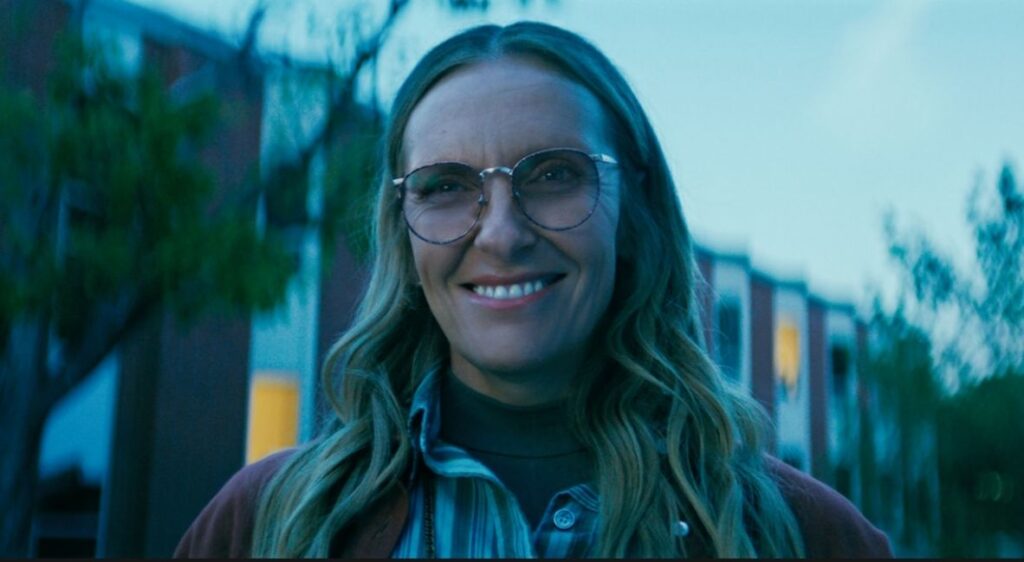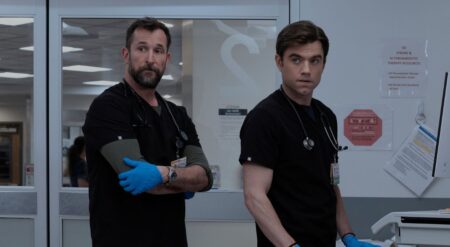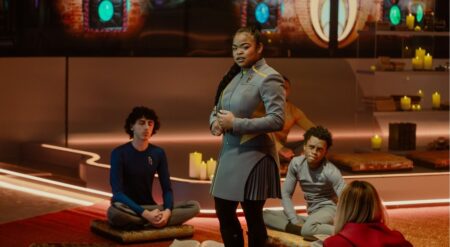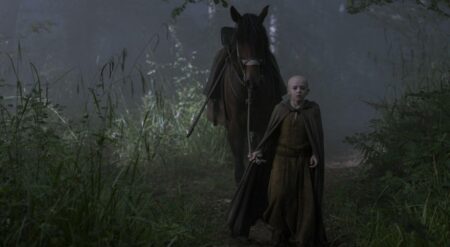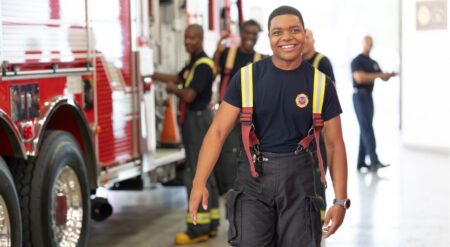Netflix Original limited series Wayward takes an already messed-up concept and makes it worse. And that’s why it works. From creator and showrunner Mae Martin (who is also one of the series’ stars), Wayward takes the idea of taking your “problem child,” shipping them off, and changing them.
The series takes the already unsettling reality of teenage boot camps for wayward teens and morphs it into a larger thriller series with one big cult at its center. It stars Sarah Gadon, Sydney Topliffe, Alyvia Alyn Lind, and Brandon Jay McLaren, Tricia Black, Tattiawna Jones, alongside Toni Collette, and all of them do the absolute most in their roles.
Set in Tall Pines, a picture-perfect town, sinister secrets lurk behind every closed door. Built on community, everyone in Tall Pins knows who each other are. They care for each other, watch out for each other, and well, they all support the local boarding school. What could be wrong?
Wayward (2025) is a limited series that captures a cultural moment that should be explored more.
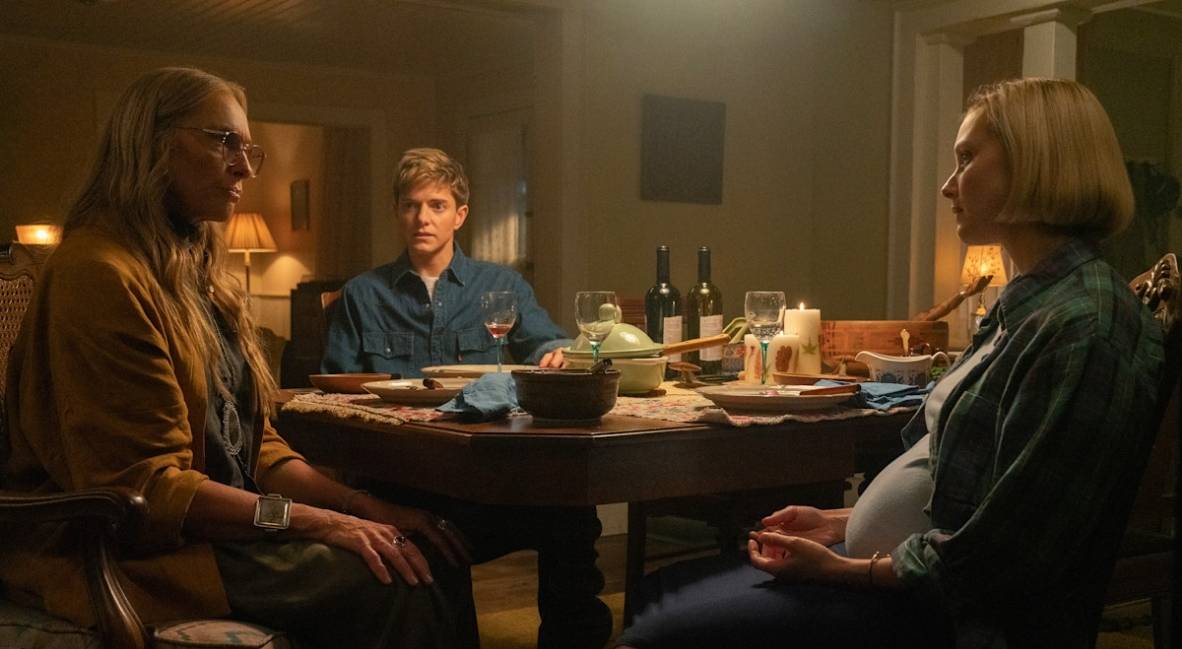
But, not long after, police officer Alex Dempsey (Martin) and his pregnant wife Laura (Gadon) move into their new home, Dempsey connects with two students, Abbie (Sydney Topliffe) and Leila (Alyvia Alyn Lind) from the local school for “troubled teens” who are desperate to escape. As Alex begins to listen to the girls’ stories and concerns, he begins to question the school.
But, as Alex begins investigating a series of unusual incidents, he suspects that Evelyn (Collette), the school’s mysterious leader, might be at the center of all the problems, and that she’s affecting the town much more broadly than the school alone.
Martin’s storytelling in Wayward is genre-bending, to put it mildly. They attempt to capture the eternal struggle between one generation and the next, as well as what happens when friendship and loyalty are put to the ultimate test. Wayward itself tells two stories for two audiences.
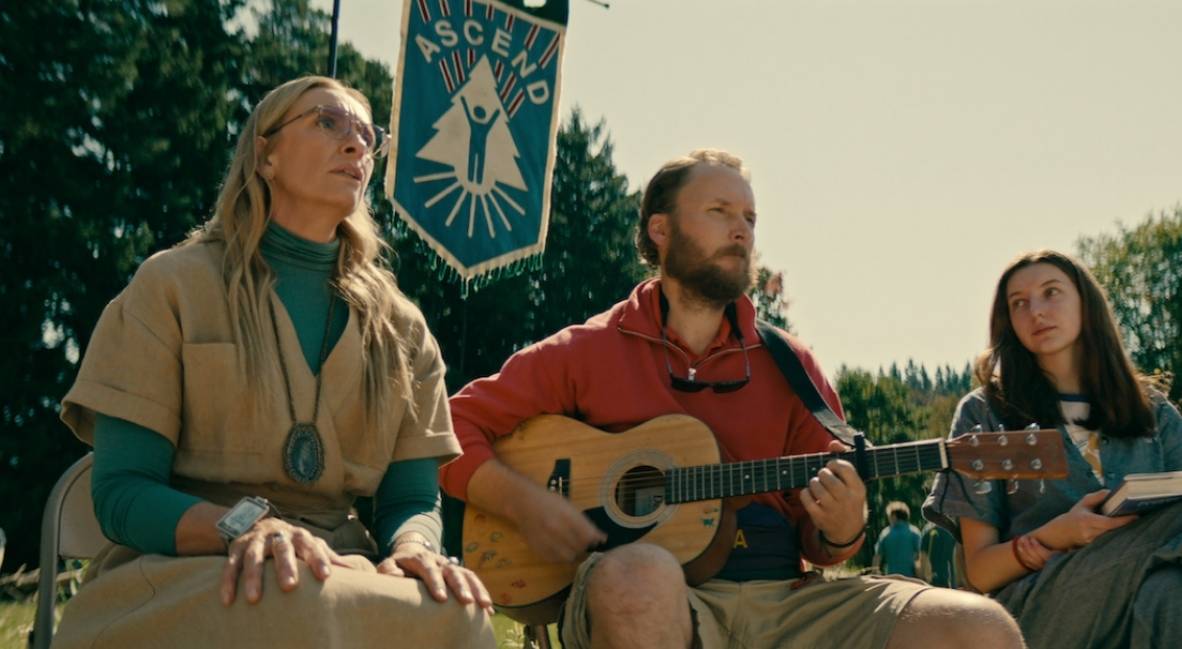
While teen best friends Abbie and Leila deal with trying to escape the school, Alex and his wife, Gadon, settle in Tall Pines after needing to find a new place to have their first child. Throughout the limited series, we move between the two storylines; however, they never outshine each other but rather connect in the middle.
Throughout Wayward, Mae’s direction is geared toward making them as uncomfortable as possible. We’re supposed to see elements of forced conversion therapy, the well-known torture that boot camps put teens through, the restriction, and the encouragement of assaul,t so long as it’s done to make the teen “better.”
The first half of Wayward leans hard into the abuse that the students are going through. The real-world parallels are stark and brutal in some ways. However, as the series progresses, the reality that the series is addressing becomes less apparent, and a larger mystery about the town’s cult emerges. The series’ narrative always hinges on concepts of guilt and growth, while the need to be loved and accepted pulls our characters into depths they wish they didn’t agree to, but can’t help but keep going deeper.
Mae Martin’s humor is key to Wayward’s unsettling narrative and its success.
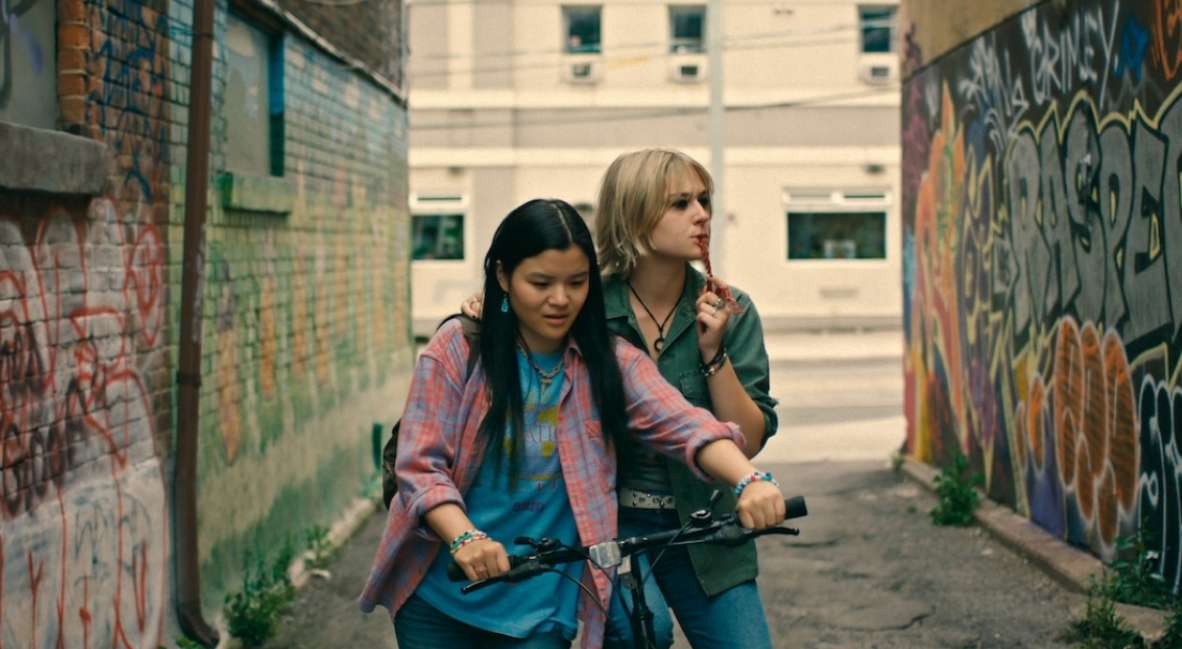
What starts as a thriller about saving children morphs into a cult thriller that becomes more violent, corrosive, and borders on supernatural when drugs come into play. But this tonal shift isn’t out of nowhere, and instead, every episode slowly pulls the audience into the center of the mystery just as the characters begin to understand the reality of the situation.
Wayward, for all the discomfort it causes, is also intentionally humorous. With humor that is sure to resonate with millennials and Gen Z audiences, the series captures a subsection of viewers who come together. One is becoming a parent, one is being parented, and both are facing the downstream consequences of the older generation on top of it all.
Outside of one or two characters, it’s hard to love and root for anyone in Wayward, but that is very much the point. Each of our main characters has a past sin that they are struggling with. Trauma paints every character so vividly, and each of the characters holds it differently. Additionally, the series’ ensemble cast performs so intimately that after an episode or two, you’re completely engrossed in their lives.
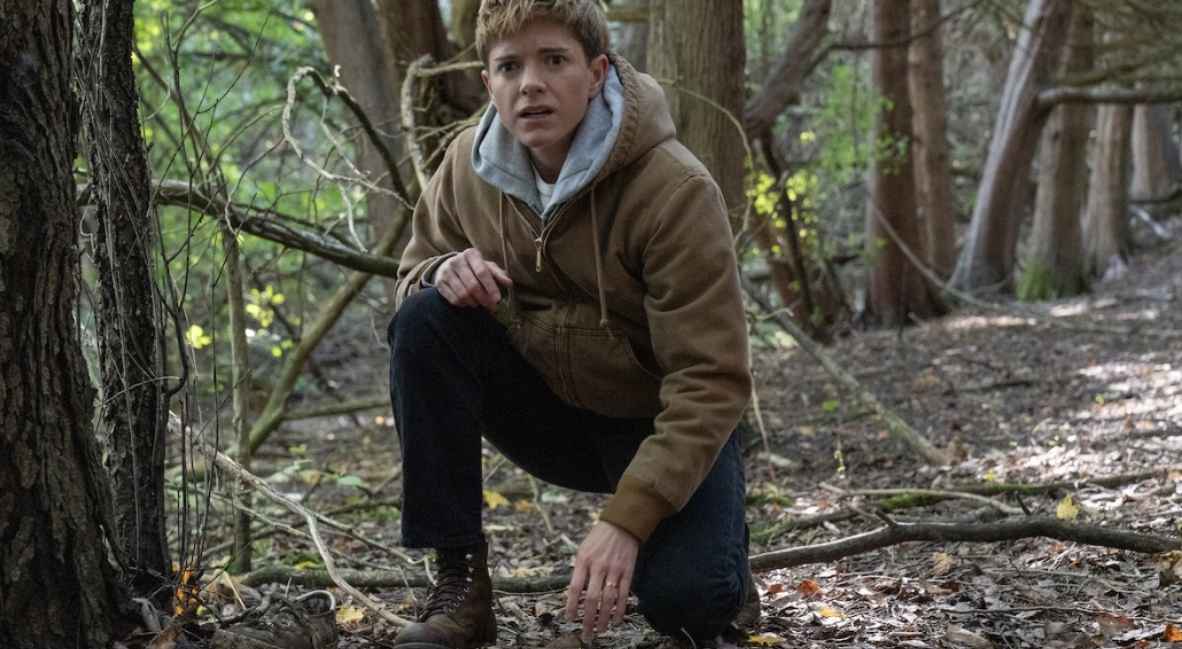
In a sea of stellar performances, though, it’s Toni Colette, Mae Martin, Alyvia Alyn Lind, and Sydney Topliffe who steal the show. As Evelyn, Colette is a force of discipline that is absolutely terrifying. From her stare to her actions, Evelyn is devastating to see, and her coldness is gutting.
Mae Martin is the audience stand-in, attempting to connect the dots, solve the case, and yet, is burdened by a violent past that he can’t escape. Additionally, his role as a father and as a husband is emotional, and the deeper into fear he falls, the more compelling he is. Additionally, the series never really calls attention to his transness for any superficial plot points. All that matters is that he is a young father with a dark past (and an insane wife).
Finally, there is Leila. Played by Alyvia Alyn Lind, she’s brash, tenacious, and she’s also reeling from a level of guilt that she can’t escape after he sister’s death. The dynamic between Leila and Abbie is what part of the plot thrives on.
While Lind’s performance is phenomenal, Sydney Topliffe’s exploration of vulnerability and resiliency is quietly the strongest in the series. While Alex and Leila are easy standouts as capable of getting out of everything due to their self-reliance and need to take action, it’s Abbie who’s calm assertion of reality and refusal to give in to cruelty that grounds the series as she begins to emerge as a main character.
Wayward is one of the best limited series that Netflix has put forward this year.
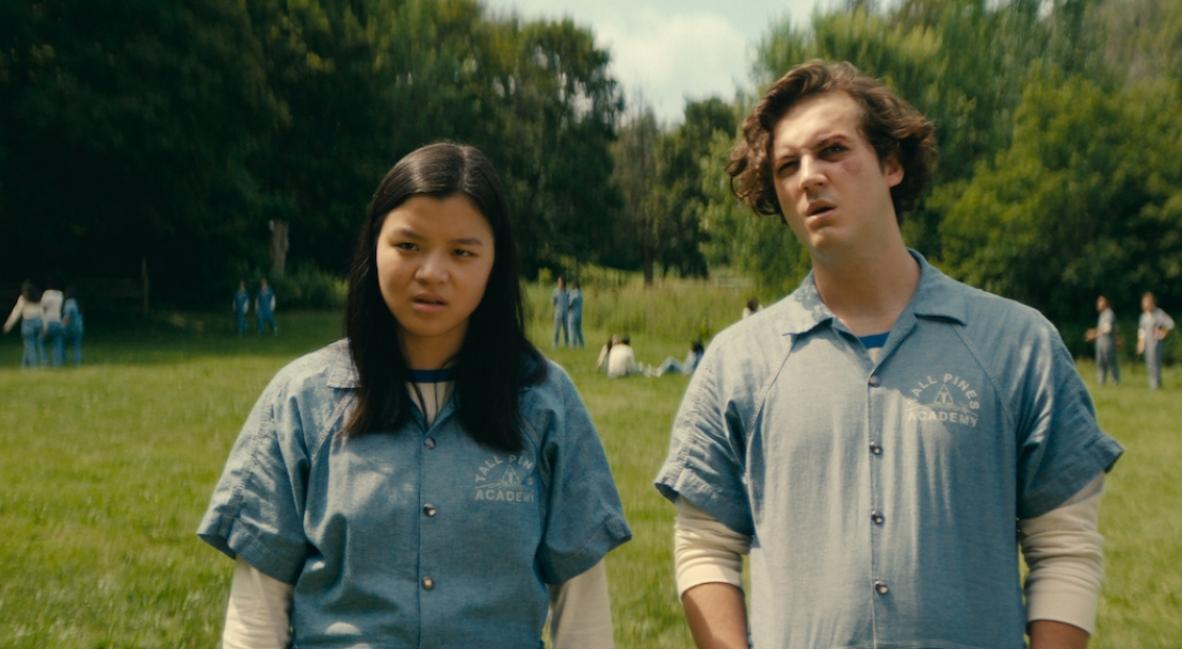
Their love for each other is central to everything, but the awkwardness and selfishness of adolescence are essential to highlight the cavern forming between them. Leila is hurting, and she doesn’t know how to fix it. And all of that builds an avenue for her to trust the school, to trust Colette’s Evelyn, and that’s what it’s hard to watch.
Wayward is one of Netflix’s boldest series, both in terms of performances and topic. It pushes hard on deconstructing the harm that wanting to be loved and be a part of a group can bring. It shows how manipulation is insidious and how taking children and forcing them into molds is killing who they are and harming their future.
This isn’t a documentary, but it does capture the fear and control that a lot of us remember from those teen boot camps. It captures the trauma of forced therapy (hateful conversion therapy and otherwise). And yet, the series is able to pull in levity at points to keep it from feeling like being hit with a hammer over and over. And that’s why it’s one of the best shows of the year.
Wayward (2025) is streaming now, exclusively on Netflix.
Wayward (2025)
-
Rating - 9.5/109.5/10
TL;DR
Wayward is one of Netflix’s boldest series, both in terms of performances and topic. It pushes hard on deconstructing the harm that wanting to be loved and be a part of a group can bring.

